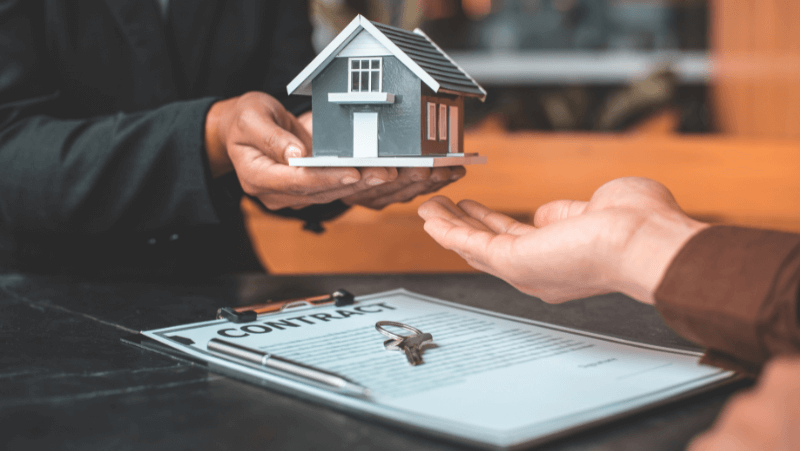
Homeowners often tap into the equity of their homes through a Home Equity Line of Credit (HELOC) to finance various large expenses. But what happens when you decide to sell your house which is under a HELOC? It’s essential to understand that selling your home with a HELOC isn’t as straightforward as regular home selling. In this guide, we will walk you through the process, shedding light on how you can navigate this situation and still manage to get top dollar for your house. Whether you’re grappling with the decision or have already made up your mind to sell this comprehensive guide, brought to you by Cream City Home Buyers, is designed to provide the insights you need to make an informed decision.
What is HELOC By Definition
A Home Equity Line of Credit, or HELOC, is a type of loan that allows homeowners to borrow against the equity in their property. Equity is the difference between what you owe on your mortgage and the current market value of your home. With a HELOC, you can access this equity without selling your home. This credit line works similarly to a credit card, where you have a pre-determined limit that you can borrow against, payback, and then borrow from again. It’s a flexible financial tool often used for significant expenses like home improvements, education, or debt consolidation. However, it’s important to remember that since your home is used as collateral, failure to repay the HELOC could potentially result in the loss of your home.
Understanding the HELOC Process
The HELOC process begins with applying at a lending institution, which could be your current mortgage lender or a different financial institution. The lender will assess your creditworthiness and the equity in your home, an evaluation that often involves an appraisal of your property. If approved, you will have access to a maximum credit line, which is the amount you can borrow.
The borrowing period, known as the ‘draw period‘, usually lasts for up to 10 years. During this period, you can borrow money as needed, up to your credit limit. Interest is charged only on the amount you borrow, not on the total credit limit, and payments during the draw period often only cover the interest.
Following the draw period is the repayment period, typically 10 to 20 years, during which you cannot borrow additional funds and must start to pay back the principal amount borrowed, along with any interest.
It’s key to remember that a HELOC uses your home as collateral. If you fail to meet the repayment terms, the lender has the right to foreclose on your property. Therefore, understanding the terms of the HELOC and managing it responsibly is crucial.
What Happens When You Sell Your Home With a HELOC?
When you sell your house after loan changes with a HELOC, the proceeds from the sale first go towards paying off your primary mortgage. After that, the remaining funds are used to pay off the HELOC. For instance, if you sell your home for $400,000 and you owe $200,000 on your primary mortgage and $50,000 on your HELOC, you’ll use the sale proceeds to pay off the $200,000 mortgage first. The next $50,000 will go to pay off your HELOC, leaving you with a balance of $150,000.
However, if the sale of the house doesn’t cover the HELOC balance, you’ll still be responsible for repaying the difference. This situation, known as being “underwater” on your mortgage, can be financially challenging. It would be wise to work with a real estate professional or financial advisor to plan for this potential scenario.
Moreover, selling your home with a HELOC might affect your credit score. That’s because HELOCs are considered revolving credit, and paying off revolving credit can potentially lower your credit score. It’s advisable to consider this aspect and consult with a financial advisor to understand the implications fully.
In case you decide to sell your house before paying off your mortgage while you still have a HELOC balance, remember that it’s crucial to communicate with your lender. They’ll provide you with a payoff statement, detailing the total amount owed, and guide you through the process.
In conclusion, while selling a home with a HELOC can be a bit complicated, by keeping these factors in mind and seeking advice from professionals, you can navigate this process successfully.

Potential Complications of Selling With a HELOC
Selling a home with a HELOC involves several potential complications that sellers should be aware of. The most significant of these relates to an uncertain real estate market. If home prices decline, you may find that the sale of your home does not cover the outstanding balance of your HELOC, leaving you with a deficit to pay out of pocket.
Another potential complication is the impact on your credit score. Since a HELOC is a type of revolving credit, its repayment will cause a significant change in your debt-to-credit ratio, which may negatively affect your credit score. This could hinder your ability to secure favorable credit terms in the future.
Also, there could be penalties associated with the early closure of a HELOC. Depending on the terms of your agreement, some lenders impose fees for closing the HELOC within a specific period after opening it.
Finally, it’s important to remember that the sale process might take longer than expected. If the HELOC is not fully paid off by the time the sale is complete, you may need to negotiate with your lender to allow the sale to proceed, which can complicate and delay the process further.
These potential complications highlight the importance of seeking advice from real estate and financial professionals when selling a home with a HELOC. With a clear understanding of these issues and careful planning, it’s possible to navigate these challenges effectively.
Selling a house with a HELOC can be confusing, thankfully there is a way to ‘sell my house fast in New Berlin‘ with Cream City Home Buyers. They can help you understand the process and purchase your home with cash, even with a HELOC. By working with experts like Cream City Home Buyers, you can ensure a smooth and successful sale of your home.
Should You Wait to Pay Off Your HELOC Before Selling?
Deciding whether to pay off your Home Equity Line of Credit (HELOC) before selling your home depends on several factors. One of the primary considerations is the current real estate market conditions. If the market is strong and property values are high, it could be a good opportunity to sell your home even with a HELOC, as the sale proceeds may cover both your primary mortgage and the HELOC balance.
However, if the market is weak or property values have declined, and the sale of the house would not cover the outstanding HELOC balance, it may be wise to wait and continue making payments towards your HELOC before considering selling.
Another aspect to consider is your financial stability. If you have the means to pay off the HELOC without significantly impacting your reserves, then paying it off could simplify your home-selling process.
Also, consider the potential impact on your credit score. Paying off your HELOC before selling can lower your credit utilization ratio – a significant factor in your credit score calculation. A lower credit utilization ratio can positively impact your credit score.
Lastly, remember to consider any penalties or fees associated with early HELOC repayment. Depending on your loan agreement, you might have to pay substantial fines for paying off the HELOC early.
In essence, there’s no one-size-fits-all answer to this question. It’s best to assess your unique situation, consider professional advice, and make an informed decision that will serve your financial goals best.
Conclusion
In conclusion, selling your home with a HELOC can be a complex process with potential risks and complications. It requires careful consideration, a thorough understanding of the market conditions, and a sound financial strategy. However, while it may seem daunting, it’s not impossible. An effective way to navigate this process might be to consider working with cash home buyers in Shorewood, Elm Grove, and Hartland.
Cash home buyers can provide you with a quick, hassle-free selling process and a fair offer for your property irrespective of your HELOC balance. By choosing this route, you can bypass many of the complications tied to traditional home selling, providing you peace of mind in what can be a stressful circumstance. Remember, the goal is to make a decision that best fits your financial needs and goals, and sometimes, that may mean thinking outside the box and considering options such as cash home buyers.
